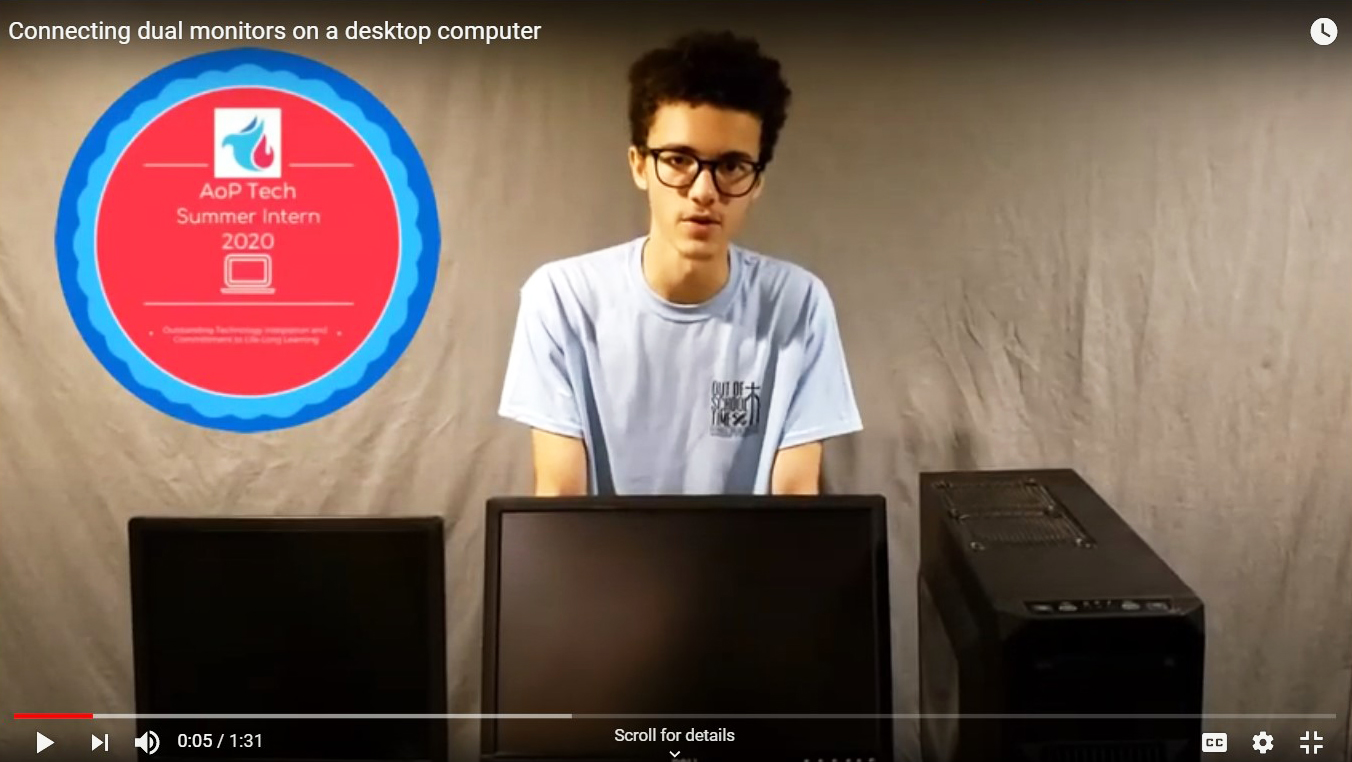
Jaden Desarden, a senior at Father Judge High School, filmed a YouTube computer explainer video as part of a 2020 summer internship in technology offered by the archdiocesan Office of Catholic Education. (Photo courtesy of the Archdiocese of Philadelphia Office of Catholic Education)
Four archdiocesan high school students used their summer breaks to obtain Google Level One Certifications, as well as a deeper appreciation for digital technology.
“I can honestly say that I learned a lot,” said Jola Banji-Ajal, a junior at John W. Hallahan Catholic Girls’ High School. “And I can apply everything I learned to daily life.”
Banji-Ajala joined three Father Judge High School students – senior Jaden Desarden and Class of 2020 graduates Dylan Chambers and Christian Nair – in technology internships offered by the Archdiocese of Philadelphia’s Office of Catholic Education (OCE).
[hotblock]
The six-week program, which began in late June, enabled participants to gain practical, paid experience in device management and networking. OCE’s technology department coordinated with archdiocesan Catholic Social Services (CSS) and the Philadelphia Youth Network’s WorkReady program to develop internship criteria and compensation.
Now in its second year, the program has tapped into “a passion in some of our students for which they haven’t really had a pathway to explore until now,” said William Brannick, OCE’s director of technology for grades preK-12.
“We’ve discovered some kids who have loved figuring out networks,” he said. “Some of them talk about home networks they’ve developed that are similar to the ones we have in our schools.”
Sensing that enthusiasm, Brannick and OCE technology integration coach Aaron Heintz explored ways to give qualified students real-world experience and summer income, while bolstering IT support at archdiocesan schools.
Although COVID-19 restrictions had moved classrooms online well before summer began, internship coordinators had actually hoped to work directly with the students. Instead, they had to quickly to revise their lessons for remote format.
[hotblock2]
“A lot of my (original) projects were hands on, such as Chromebook setup,” said Rosie Carollo, technology coordinator at Hallahan. “So I really had to rethink what I could have them do virtually.”
Carollo and Father Judge IT director Tommy Fonville adapted their assignments, with each supervising two of the four interns through Zoom, Google Drive and email exchanges.
The students also submitted reflective journal entries about their projects through Flipgrid, a video discussion platform favored by many educators.
In addition, Desarden and Chambers created YouTube explainer videos for connecting secondary monitors to Windows 10 and Macbook Pro machines respectively.
Computer technology focuses on performance speed, but the projects required patience, said Banji-Ajala, who prepared detailed device inventories and product comparisons – both of which are essential to an organization’s digital best practices.
“I learned that being an internet technician means … you will make mistakes, but don’t beat yourself up over them,” she said. “Everyone makes mistakes, but it’s really how you fix them.”
While students today are considered “digital natives” who grew up immersed in technology, there’s still a lot they need to learn, said Carollo.
Researchers have found that digital natives are adept at using social media and online platforms, but often lack an understanding of the frameworks that power their favorite apps.
Simply mastering code isn’t sufficient either, since the implementation of digital resources varies widely across various industries. Overall network infrastructures remain fairly consistent, said Carollo, but education and business often have “two different ways of using technology.”
Brannick stressed that classroom technology “should really be the springboard to provide a deeper learning experience for our students.”
“Don’t force feed it where it doesn’t belong,” he said. “Use it to enhance learning, and to engage students in an opportunity to expand their education.”
Banji-Ajala and her fellow interns have taken those lessons to heart.
“It was really beneficial to learn these skills,” said Banji-Ajala. “I know I will use them almost every day.”
PREVIOUS: After COVID, survivor thanks doctors at Catholic hospital
NEXT: Local partnership provides teachers with protective screens



Share this story